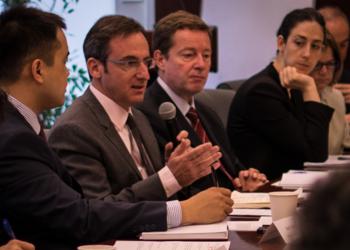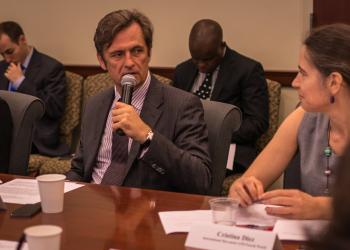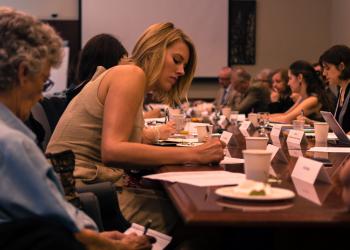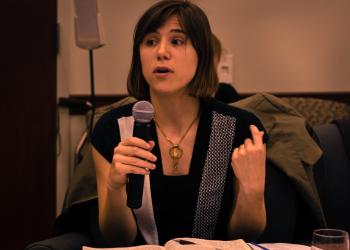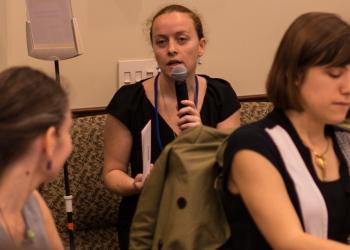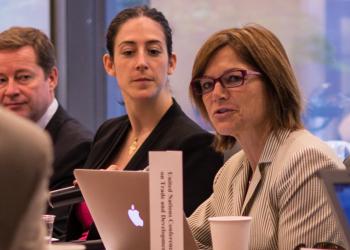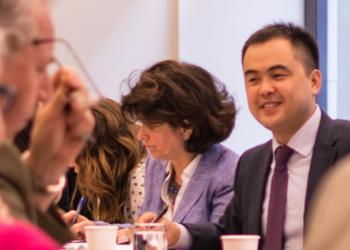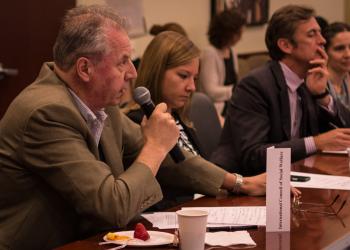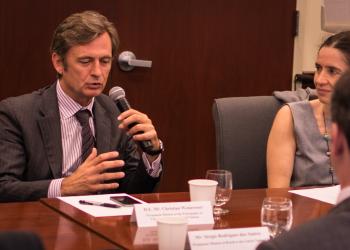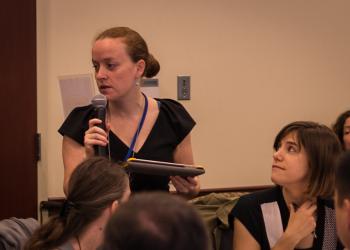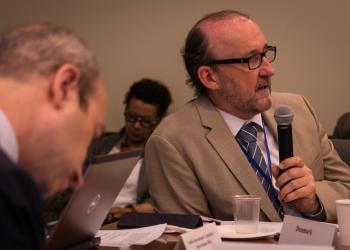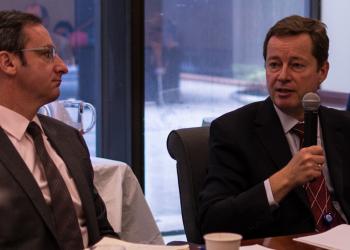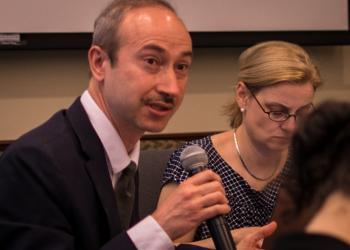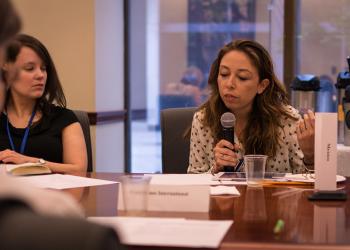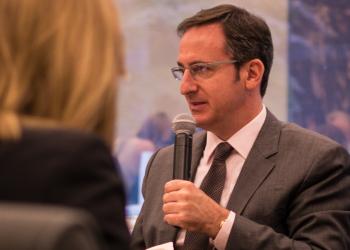A UPR for the SDGs? How to monitor the post-2015 agenda
Almost everyone involved in fashioning the proposed sustainable development goals (SDGs) agrees that some kind of monitoring or follow-up to their implementation is essential.
But what kind of a review mechanism should be created to ensure meeting the goals, which are among the most ambitious yet devised by the UN?
This was the overarching question discussed at an informal breakfast meeting held 28 May 2015 at the offices of the Baha’i International Community of diplomats, UN officials and civil society on the post-2015 development agenda.
And among the points that emerged was that perhaps something like the Universal Periodic Review (UPR), established to assess the progress of countries on human rights, might be set up to monitor fulfilment of the proposed goals.
Christian Wenaweser, the permanent representative of Liechtenstein’s mission to the UN, and Sérgio Rodrigues dos Santos, minister plenipotentiary of Brazil’s mission to the UN, were keynote speakers at the breakfast, which focused the topic: “Essential elements of an effective and inclusive follow-up mechanism for the Post-2015 Agenda.”
Mr. Wenaweser said countries involved in negotiations on the SDGs, which are to be adopted in September, agree on the need for a review mechanism, but have so far only decided that such a mechanism should be “state-led” and “principally voluntary in nature.”
Mr. Wenaweser said his country – along with an ad hoc group of six others composed of Egypt, Norway, Pakistan, Peru, the Republic of Korea, and Switzerland – are pushing for a strong review mechanism that would obligate the input of civil society and other stakeholders.
“Having the people in charge of things, looking at what they are supposed to do and report on it, really makes a big difference,” said Mr. Wenaweser.
His country and the other six have called on the already existing High Level Political Forum on Sustainable Development (HLPF) to become “the key forum” for such a review mechanism.
“Our view is that it is already clear now that the 2016 HLPF will … set the agenda for the years to come,” said Mr. Wenaweser.
Mr. Rodrigues dos Santos likewise stressed the importance of a follow-up mechanism that will include civil society input.
“Virtually every major international effort that brings together countries around a common agenda and common goals has resulted in follow-up and review mechanisms,” he said.
The critical challenge in developing a review mechanism will be at the national level, he said, adding that for low-income countries especially, the capacity to coordinate between national and local levels and to mobilize human and financial resources will be especially important to the implementation of the SDGs.
On the immediate horizon, one thing to watch for, he said, will be whether any kind of review mechanism emerges from the Financing for Development meeting in July in Addis Ababa.
“As you know, there has never been a follow-up mechanism for the commitments made for Financing for Development, and so we have a window of opportunity now to redress that situation,” said Mr. Rodrigues dos Santos.
Kate Donald, director of the human rights in development program at the Center for Economic and Social Rights, also gave a formal response before the general discussion, which as usual was conducted under Chatham House rules to encourage frank and open dialogue.
Ms. Donald said it was important to draw a distinction between the universal ambitions of the SDGs and the need for differentiated responsibilities. “We do need to recognize that states are starting from different points and they have differentiated responsibilities, especially with regard to the means of implementation and financial issues,” she said.
One model, she said, would be a peer review mechanism, where countries gather and discuss with each other their progress at meeting the goals, along the lines of the UPR at the Human Rights Council, which was established in 2006.
She said that while some had predicted the UPR might lead to hostility or “mud-slinging” between states, in her view “the engagement has been very constructive.”
The event was the 26th in a series of such breakfast meetings. Like previous meetings, it was co-sponsored by International Movement ATD Fourth World. For informal notes, click here.
